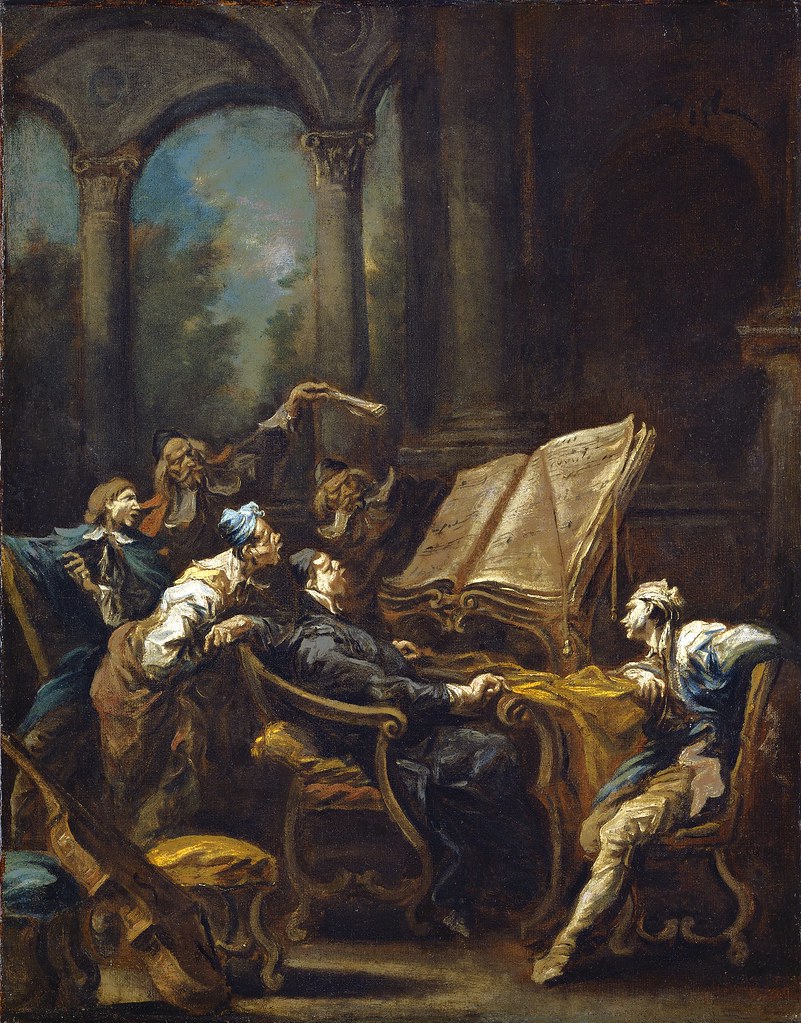Giovanni Antonio Rigatti (c.1613-1648)
- Messa concertata à 8 vocibus (1640)
Performers: Singers of Vancouver
Further info: Rigatti - Venetian Mass 1640
---
Italian composer and singer. He became a choirboy at S Marco, Venice, in
September 1621 and later trained as a priest at the Patriarchal
Seminary. From September 1635 until March 1637 he was maestro di
cappella of Udine Cathedral; his reputation was already so high that he
was awarded a salary twice that of his predecessor, Orindio Bartolini.
In August 1639 he was appointed maestro d'organo e musica alle figliole
at the Ospedale dei Mendicanti; by 1642 he had also started teaching at
the Incurabili, apparently without the permission of the Mendicanti
authorities, who appointed a commission to observe his movements and
dismiss him if necessary. His teaching was thenceforward confined to the
Incurabili, where his pupils included Francesco Lucio, one of whose
psalm settings he included in his 1646 collection. In 1642 he was
appointed chaplain to Gian Francesco Morosini, who became Patriarch of
Venice in 1644 and a procurator of S Marco in 1645, and whose influence
led to Rigatti's appointment as a sottocanonico of S Marco in July 1647.
The high esteem in which he was held at Udine while still in his early
twenties is entirely consistent with his being, together with men such
as Giovanni Rovetta and Gasparo Casati, one of the outstanding Italian
composers of church music working in the 1630s and 40s. Nine of his
eleven surviving collections are of church music: two books of solo
motets, three of small-scale concertato motets (one including a messa
breve) and no fewer than four of psalm settings (three including a mass
each). Most of this music includes parts for obbligato instruments,
usually violins, and much of it is adaptable, either to an intimate
chamber-like medium with solo voices and perhaps violins, or to grander
occasions by the addition of a ripieno chorus and sometimes extra
instruments. The 1640 Messa e salmi, dedicated to the Emperor Ferdinand
III, is the most impressive collection. It maintains a consistently high
level of invention and rivals Monteverdi’s Selva morale of the same
year in its comprehensive range of contents: one mass and several psalms
in the grand concertato manner, psalms for smaller combinations of
voices and instruments, and others marked ‘da cappella’ (denoting not
the stile antico but the absence of soloists and the instrumental
doubling of voices).

Cap comentari:
Publica un comentari a l'entrada